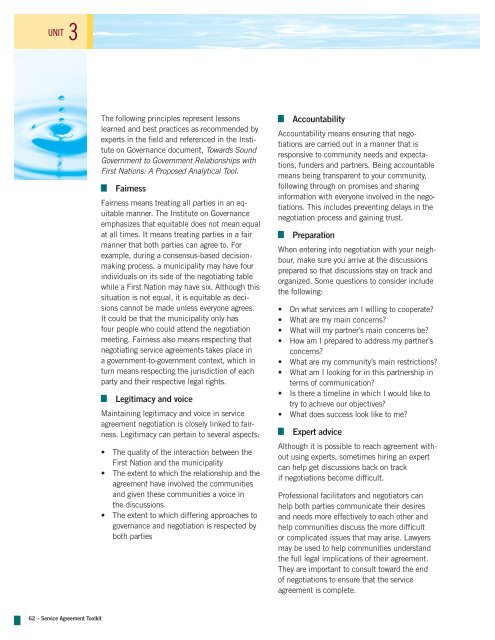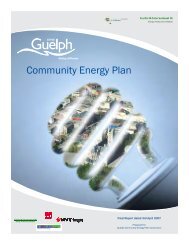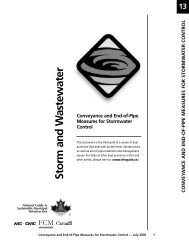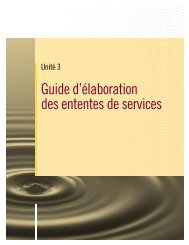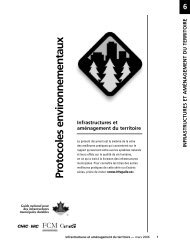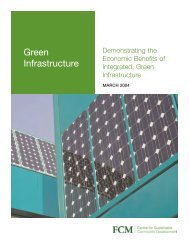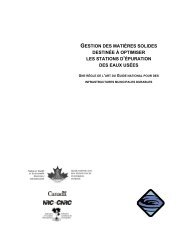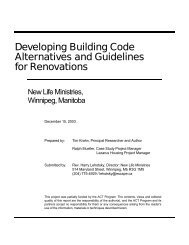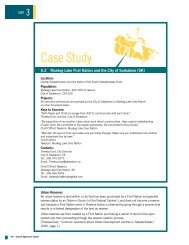Guide to Service Agreements - FCM
Guide to Service Agreements - FCM
Guide to Service Agreements - FCM
You also want an ePaper? Increase the reach of your titles
YUMPU automatically turns print PDFs into web optimized ePapers that Google loves.
UNIT 3<br />
62 – <strong>Service</strong> Agreement Toolkit<br />
The following principles represent lessons<br />
learned and best practices as recommended by<br />
experts in the field and referenced in the Institute<br />
on Governance document, Towards Sound<br />
Government <strong>to</strong> Government Relationships with<br />
First Nations: A Proposed Analytical Tool.<br />
Fairness<br />
Fairness means treating all parties in an equitable<br />
manner. The Institute on Governance<br />
emphasizes that equitable does not mean equal<br />
at all times. It means treating parties in a fair<br />
manner that both parties can agree <strong>to</strong>. For<br />
example, during a consensus-based decisionmaking<br />
process, a municipality may have four<br />
individuals on its side of the negotiating table<br />
while a First Nation may have six. Although this<br />
situation is not equal, it is equitable as decisions<br />
cannot be made unless everyone agrees.<br />
It could be that the municipality only has<br />
four people who could attend the negotiation<br />
meeting. Fairness also means respecting that<br />
negotiating service agreements takes place in<br />
a government-<strong>to</strong>-government context, which in<br />
turn means respecting the jurisdiction of each<br />
party and their respective legal rights.<br />
Legitimacy and voice<br />
Maintaining legitimacy and voice in service<br />
agreement negotiation is closely linked <strong>to</strong> fairness.<br />
Legitimacy can pertain <strong>to</strong> several aspects:<br />
• The quality of the interaction between the<br />
First Nation and the municipality<br />
• The extent <strong>to</strong> which the relationship and the<br />
agreement have involved the communities<br />
and given these communities a voice in<br />
the discussions<br />
• The extent <strong>to</strong> which differing approaches <strong>to</strong><br />
governance and negotiation is respected by<br />
both parties<br />
Accountability<br />
Accountability means ensuring that negotiations<br />
are carried out in a manner that is<br />
responsive <strong>to</strong> community needs and expectations,<br />
funders and partners. Being accountable<br />
means being transparent <strong>to</strong> your community,<br />
following through on promises and sharing<br />
information with everyone involved in the negotiations.<br />
This includes preventing delays in the<br />
negotiation process and gaining trust.<br />
Preparation<br />
When entering in<strong>to</strong> negotiation with your neighbour,<br />
make sure you arrive at the discussions<br />
prepared so that discussions stay on track and<br />
organized. Some questions <strong>to</strong> consider include<br />
the following:<br />
• On what services am I willing <strong>to</strong> cooperate?<br />
• What are my main concerns?<br />
• What will my partner’s main concerns be?<br />
• How am I prepared <strong>to</strong> address my partner’s<br />
concerns?<br />
• What are my community’s main restrictions?<br />
• What am I looking for in this partnership in<br />
terms of communication?<br />
• Is there a timeline in which I would like <strong>to</strong><br />
try <strong>to</strong> achieve our objectives?<br />
• What does success look like <strong>to</strong> me?<br />
Expert advice<br />
Although it is possible <strong>to</strong> reach agreement without<br />
using experts, sometimes hiring an expert<br />
can help get discussions back on track<br />
if negotiations become difficult.<br />
Professional facilita<strong>to</strong>rs and negotia<strong>to</strong>rs can<br />
help both parties communicate their desires<br />
and needs more effectively <strong>to</strong> each other and<br />
help communities discuss the more difficult<br />
or complicated issues that may arise. Lawyers<br />
may be used <strong>to</strong> help communities understand<br />
the full legal implications of their agreement.<br />
They are important <strong>to</strong> consult <strong>to</strong>ward the end<br />
of negotiations <strong>to</strong> ensure that the service<br />
agreement is complete.


